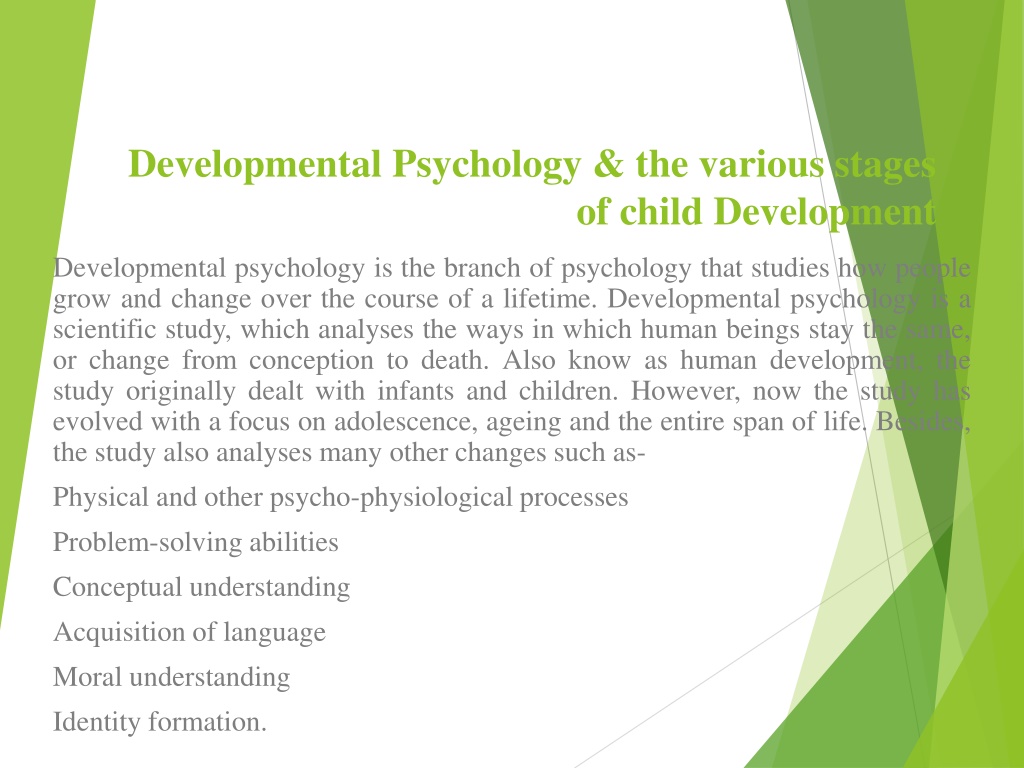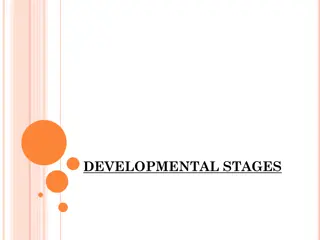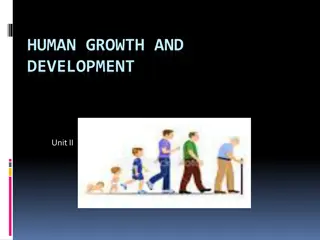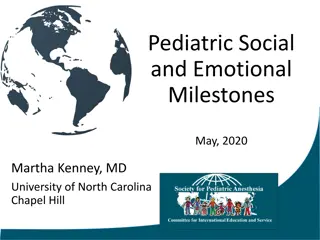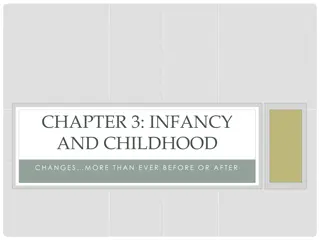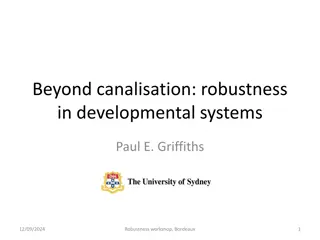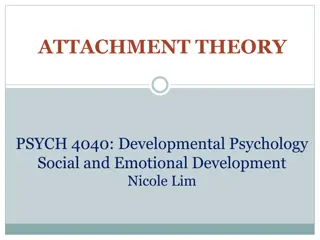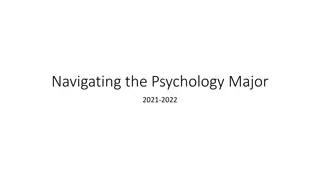Understanding Developmental Psychology: Various Stages of Human Development
Developmental psychology is a scientific study analyzing how individuals evolve from infancy to old age. It encompasses physical and psychological processes, problem-solving, language acquisition, moral understanding, and identity formation. Major theories like psychoanalytic, behavioristic, and cognitive theories shed light on different aspects of human development. This field explores applied areas like educational psychology and child psychology, focusing on biological, social, and cultural factors influencing growth.
Uploaded on Jul 01, 2024 | 0 Views
Download Presentation

Please find below an Image/Link to download the presentation.
The content on the website is provided AS IS for your information and personal use only. It may not be sold, licensed, or shared on other websites without obtaining consent from the author. Download presentation by click this link. If you encounter any issues during the download, it is possible that the publisher has removed the file from their server.
E N D
Presentation Transcript
Developmental Psychology & the various stages of child Development Developmental psychology is the branch of psychology that studies how people grow and change over the course of a lifetime. Developmental psychology is a scientific study, which analyses the ways in which human beings stay the same, or change from conception to death. Also know as human development, the study originally dealt with infants and children. However, now the study has evolved with a focus on adolescence, ageing and the entire span of life. Besides, the study also analyses many other changes such as- Physical and other psycho-physiological processes Problem-solving abilities Conceptual understanding Acquisition of language Moral understanding Identity formation.
Hence, developmental psychology means- Developmental psychology is the scientific study of changes that occur in human beings over the course of their life. Developmental psychology highlights issues such as the extent of development through gradual accumulation of knowledge versa stage like development and the extent to which children are born with innate mental structures, versa learning through experience. Developmental psychology highlights several applied fields, including- educational psychology, child psychology and forensic developmental psychology. Developmental psychology complements several other basic research fields in psychology including social psychology, cognitive psychology, ecological psychology, and comparative psychology. Developmental psychology highlights the aspects of psychological development and is the studies of the biological, social, and cultural factors that affect development.
1. Psychoanalytic theory- This theory has been described by Freud and Erikson. Here only Freud theory has been discussed. According to Freud, a child passes through 5 major stages of psychosexual development. Each stage is characterized by certain behavioural changes. The stages are given as following- 1. The oral stage: The focus of pleasure in the oral stage is mouth. 2. The anal stage: It refers to the stages when the focus of pleasure shifts from mouth to the anus. 3. Phallic stage: The focus of pleasure shifts from anus to the sexual organs. 4. Latency stage: During this stage, infantile sexuality becomes less important. The child engages himself/herself in learning skills and in the development of values. 5. Genital stage: The focus of pleasure shifts to the member of the opposite sex.
2. Behaviouristic theory: Under behavioural theory, we are going to discuss here the theory propounded by Albert Bandura. He emphasizes the importance of reward and punishment in the development of behaviour. According to him, the child s behaviour is affected by satisfaction and pleasure. In early childhood, parental approval and fear or anxiety associated with punishment influence the moral and social development of the child.
3. Cognitive theory: Jean Piaget is a cognitive theorist who has been working on child development for the last four decades. According to him, there are 4 stages of child development. The first stage is called the sensorimotor period when the infant learns and develops sensorimotor skills by manipulating objects in its environment. In the second stage which runs from 2 to 7 years, the child begins to acquire vocabulary with which he/she represents objects and experiences he/she perceives. This stage is called Pre-operational thought. The third stage is called Concrete operation period, which begins from 7 and continues up to 12 years of age. The child begins to think logically and rationally about problems, which he/she faced at this stage.
The various stages of child Development: The impulsive and erratic child of today will become the reasoning and mature adult of tomorrow. From birth to maturity the human being passes through a series of change or stages of development. Truly, human life as whole is a continuous process of growth or development. But yet it is not for nothing that psychologists and thinkers commonly distinguish between infancy, childhood, adolescence and maturity.
1. According to Rousseau- the following are human stages of development- a) Infancy. b) Childhood. c) Adolescence. d) Maturity.
2. Dr. Earnest Jones has also pointed out recently that human development takes place in four well defined stages- 1. Infancy From birth to five years. 2. Childhood Up to 12 years. 3. Adolescence up to 18 years. 4. Maturity 18 years onwards.
I do not claim the absolute rigidity in the above classification in terms of either the division of life span into above mentioned stages or the duration of period mentioned against them. There are certainly great individual differences and so we should not imagine that every child will necessarily have each stage according to the period indicated above.
Thanking You Presented By- Dr. M. U. Akanda Department of Education. Salbari College, Salbari.
